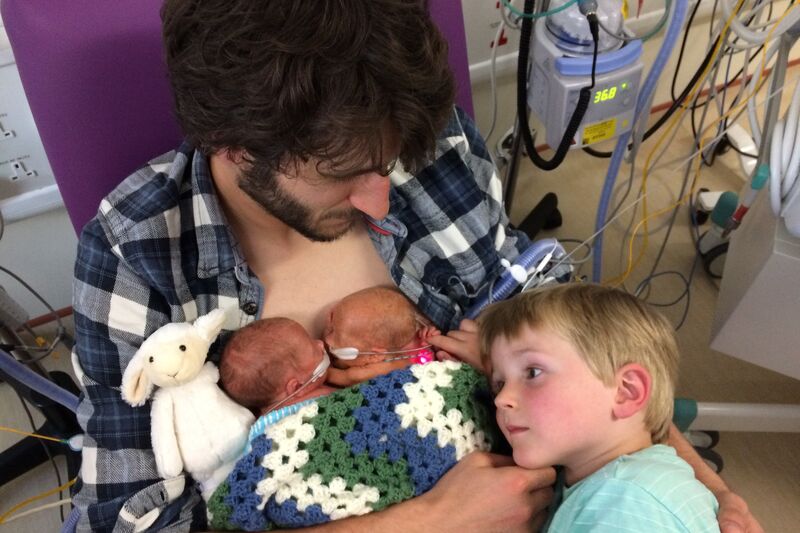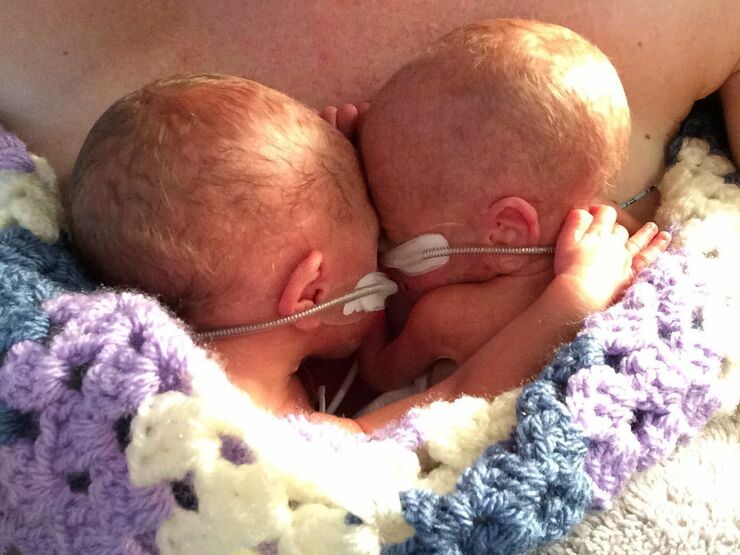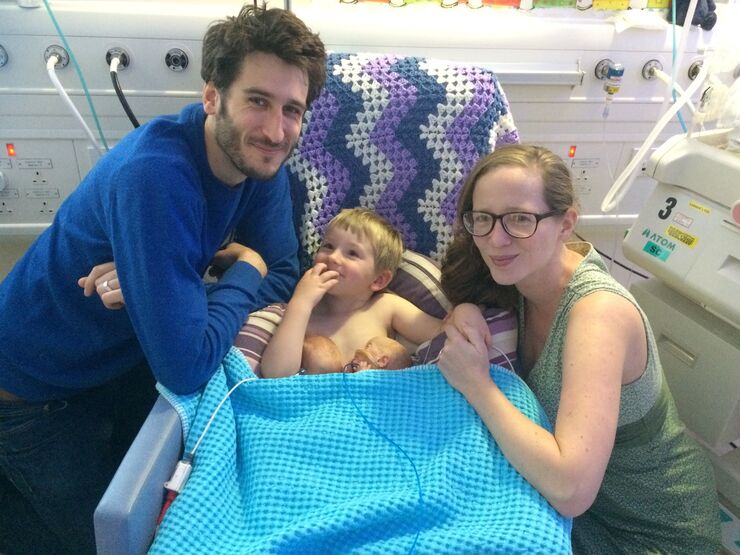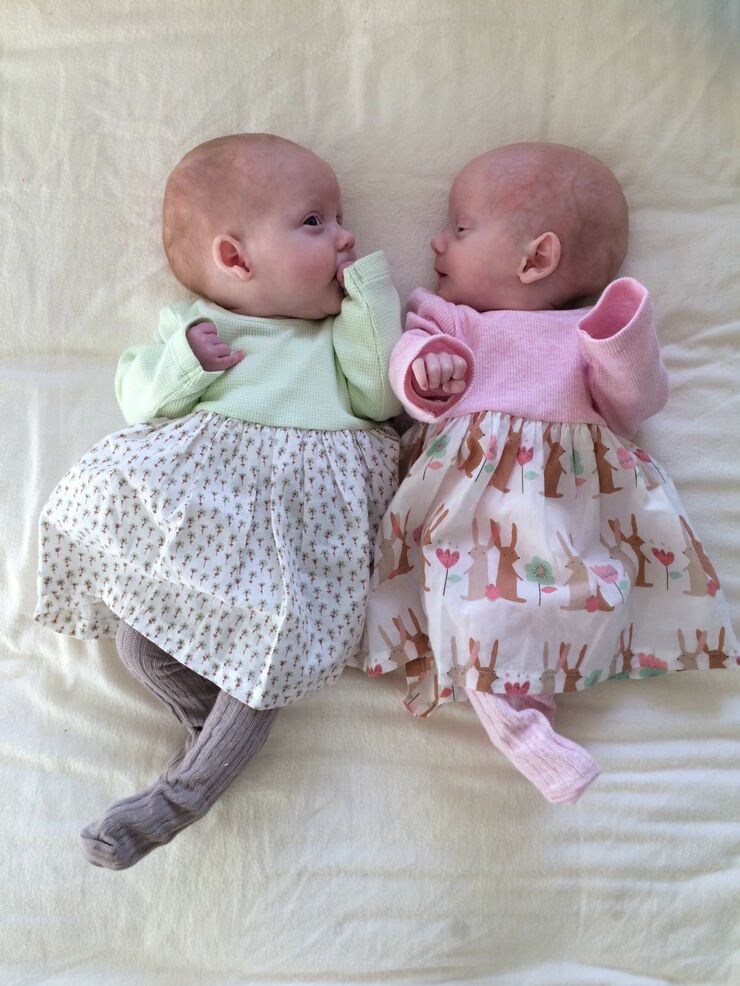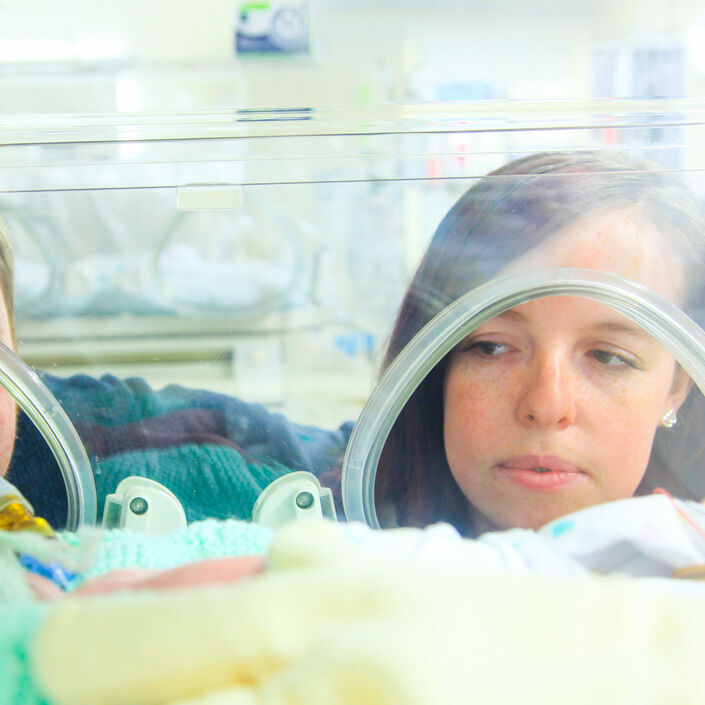I remember vividly the first moment I walked into NICU. The calm room filled with blue lights and the steady beeping of machines tracking the babies’ sats and heart rate. Two rows of tiny babies, about twelve in total, in perspex boxes lined the room. Two of them were mine.
Seeing Iona for the first time was totally overwhelming. The box looked huge compared to this tiny baby, there were wires everywhere and she was intubated, but all I could see was my baby girl. Then I saw Olwen, who was smaller still and I felt equally moved. They both looked so calm, their chests working hard to breathe, occasionally twitching as though dreaming peacefully. Seeing their calm determination gave me the first real sense of hope I had felt so far.
Despite being born at 29 weeks, this was in many ways better than many of the scenarios we had predicted. From early on in pregnancy we knew that we were having identical twins and that they shared a placenta. This introduced all manner of possible complications, including twin-to-twin transfusion syndrome (TTTS) and we were told there was a high chance that one or both would not make it.
We had endured six months of anxiety, living from scan to scan and trying our best to carry on with our lives, including being parents to our three-year-old boy. There was a brief window around the 24 week mark that we thought things might be ok and we may even reach term. At our 29 week scan, it all changed. Olwen had barely grown for two weeks. Our only option was delivery.
